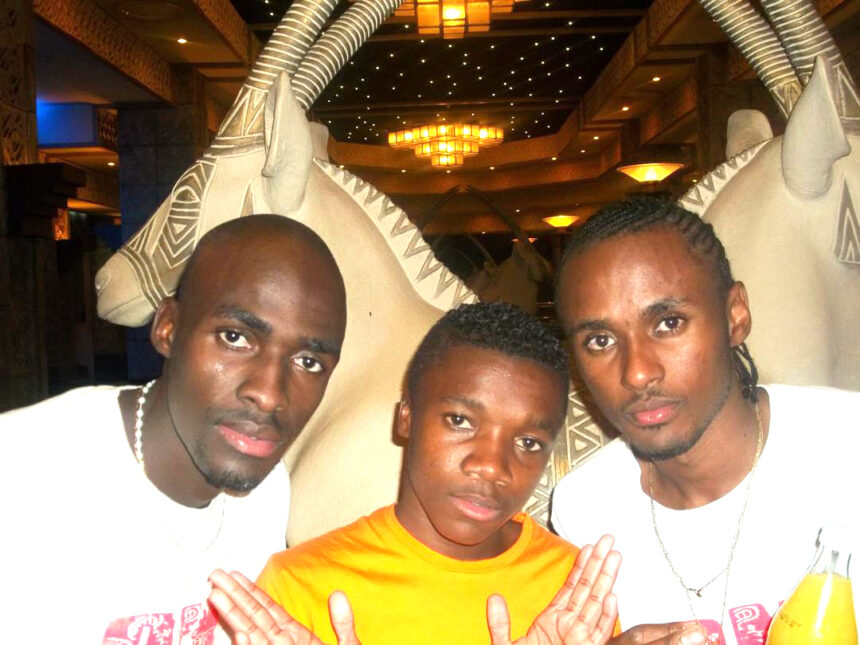The management of Ongoro Nomundu Concert Group (OCG) attributed its more than two decades of existence in the Oviritje music industry to endurance, discipline and commitment.
Manager Sello Kaunata Marenga said the group had and still has young, energetic and dedicated creatives who love the genre and will continue to occupy space in the genre.
“The group has an influential culture of appealing to its audience through music and dance. These are individuals who become part of the family. I believe that’s why we can’t disappoint or let them down. We owe them that much. The support has been overwhelming over the years,” said the leader, who is the pianist in the group.
Ongoro Nomundu Joruvanda in Otjiherero, means the horse and the rider.
The group was established in 2000 under the leadership of then-manager Justice Kapitango.
“Over the years, we have been working with about 15 to 18 members. It fluctuates around there, so it’s quite a big number. That also goes to show that there is an interest in the genre.
We have also released more than 15 albums over the years,” he stated.
A name that is synonymous with Ongoro Nomundu is Etoo Vekupahera Makono, a vibrant energetic dancer who has been part of the group since 2005.
“The late Karitjindire Tjikurame gave me the name Etoo when I joined the group. Nguruvi Uanivi, a notable member of the group, brought me here. I have never left. The group embodies discipline and endurance. I think that’s why I stayed,” said the dancer.
Makono stated that one of the reasons why the group has existed for 25 years is because of clear communication.
“The communication strategy, ability to caucus and ensure everyone is on the same page – and most importantly, respect for one another can take institutions far. All of that is in the group. That is why we are still standing tall,” he said.
Not far from him is Makono’s older brother McSean Makono, who has now ventured into civil service in north western parts of the country.
McSean served as the manager of the group once upon a time, recalling the great and memorable times he shared and continues to share with the group.
“When I came on board, it was for the sole purpose of enhancing the amazing sound they had. I came from a sound engineering background. I was needed to render my services to enhance that,” he said.
Reminiscing on what kept the singing band afloat, he addressed the elephant in the room – alcohol.
“When you carefully observe groups or individuals nowadays, the biggest problem in the industry in this country is alcohol. They hardly last because of substance abuse. I don’t remember where an Ongoro Nomundu member performed on stage drunk or was seen consuming alcohol before a show.
“We were very strict with that. Yes, we do have members who consume alcohol, but there is a time to play and a time to be serious,” he said with a serious and stern tone.
McSean said oviritje music is a unifier.
The group did not hesitate to get parents involved in their children’s passion.
“We started inviting parents to be part of the show. We sought permission, and would always inform them of events so that they could be aware. We ended up having the likes of Rapama Kamehozu and Hoze Riruako as patrons of Ongoro Nomundu,” he said.
He compared Ongoro Nomundu to the football team African Stars, saying these two entities are national teams that are there to enhance the potential of individuals and bring the best out of them.
The growth of the group has led to it being registered as a business.
They engaged creatives like Stanley Mareka to spice up their choreography.
Mareka yesterday said Ongoro Nomundu is one of the roots of the nation when it comes to the true rhythm of Oviritje.
“The group has been existing for years, always having a young vibrant team. They were the only ones who were keeping up with the operation styles and mixing up with their storylines of cultural diversity through the Ovaherero tradition – doing it through dancing,” said the choreographer.
He added that he is a huge fan of Oviritje and Ma/gaisa, hence when requested to assist the group in coming up with new dance moves, he didn’t hesitate.
“Their music speaks loudly. I feel like they need to be at the level of representing Namibia abroad because they speak more unique sounds.
They have that authenticity of what Namibia means,” he remarked, brimming with pride at how far the group has come.



